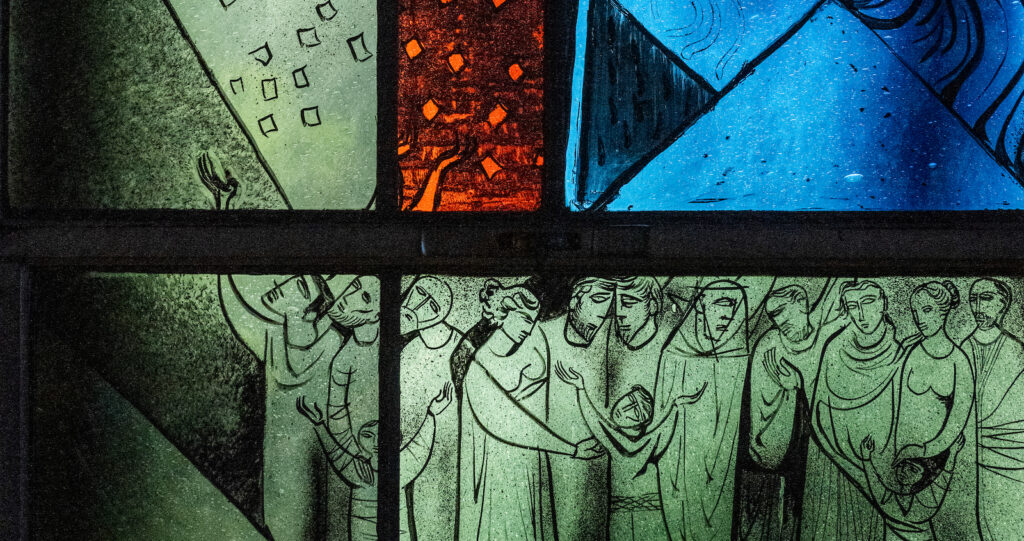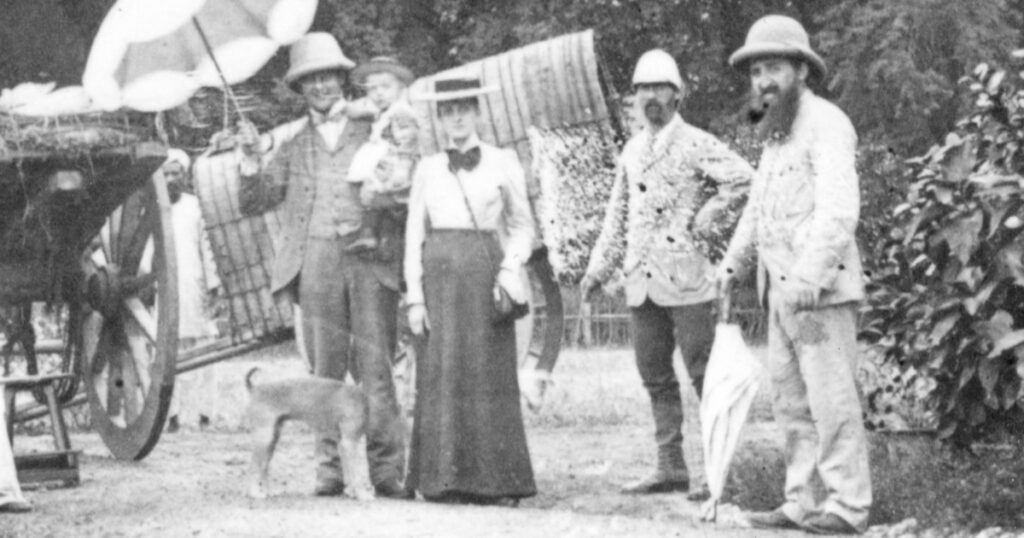By Roy S. Askins
The modern era struggles with what C.S. Lewis called “chronological snobbery,” the uncritical preference for “the intellectual climate common to our own age.” It is seen in the way “modern” is used when connected with conveniences or intellectual ideas. This age — most of us included — simply assumes that something modern is better.
This same snobbery sometimes afflicts the church. For years, Martin Luther and the reformers were critiqued for a supposed lack of interest in “mission.” But the fact is that they understood the church’s work more comprehensively, even holistically.
The modern use of “mission” arose in the 19th century and was used to describe foreign evangelistic activity. In the 20th century, the burgeoning unbelief of those in the West needed to be addressed, and the term expanded to include also domestic or national mission. This is when signs started appearing on church parking lot exits saying: “You are now entering the mission field.”
The practical result was that “mission” came to refer to everything the church was supposed to be doing outside the church walls. But here’s the problem: The church’s work to save the lost does not occur only externally to a church building. Instead, every action of God through His church is directed toward the redemption and salvation of sinners. This is how Reformation Lutherans understood the church’s mission.
The Reformation View of ‘Mission’
Martin Luther’s understanding of mission is displayed clearly in his Small and Large Catechism explanations to the Apostles’ Creed. [1] To be sure, he did not intend to write a modern theology of missions. However, his assumptions about God’s work in the world provide a foundation for understanding the mission of the church.
The Apostles’ Creed begins with the work of creation. God’s first step in redeeming the world was to create it. God knew man would fall into sin, and yet, in love, He created the world regardless, knowing that He would send His Son to suffer and die for the sins of the world. Thus, the love of God for sinners that sent Christ to die is the same love of God that created the world.
Luther’s explanation shows God’s fatherly divine goodness and mercy in caring for sinful humanity even after creation. “I believe that God has made me and all creatures; that He has given me my body and soul, eyes, ears, and all my members … and still takes care of them,” you have no doubt heard children recite, or perhaps recited yourself (SC The Creed, First Article, Luther’s Small Catechism with Explanation, CPH, 2017). Mission begins prior to the speaking of the Word of the Gospel; without God’s providing hand for the righteous and the wicked alike (see SC III, 4th Petition), the unbeliever would have no opportunity to hear that Gospel.
God’s work of redeeming sinful mankind belongs to the Second Article, which details the incarnation, suffering, death and resurrection of Jesus Christ for the sins of the world. Luther summarizes it in the Large Catechism: “The little word Lord means simply the same as redeemer. It means the One who has brought us from Satan to God, from death to life, from sin to righteousness, and who preserves us in the same” (LC II 31; emphasis original). Without redemption, there would be no mission.
The Holy Spirit delivers the redemption Christ won. Luther writes:
The work of redemption is done and accomplished. Christ has acquired and gained the treasure for us by His suffering, death, resurrection, and so on. … So that this treasure might not stay buried, but be received and enjoyed, God has caused the Word to go forth and be proclaimed. In the Word He has the Holy Spirit bring this treasure home and make it our own. (LC II 38)
If the Holy Spirit’s work is to make people holy as His name implies, Luther says, the question becomes: “What are His method and means to this end?” He answers his own question: “By the Christian Church, the forgiveness of sins, the resurrection of the body, and the life everlasting. For in the first place, the Spirit has His own congregation in the world, which is the mother that conceives and bears every Christian through God’s Word” (LC II 41–42). The mission of the church does not happen only outside the church’s walls, but is integral to everything she does.
The closing words to the Apostles’ Creed portion of the Large Catechism seal the deal:
See, here you have the entire divine essence, will, and work shown most completely in quite short and yet rich words. In these words all our wisdom stands, which surpasses and exceeds the wisdom, mind, and reason of all people. … For here in all three articles God has revealed Himself and opened the deepest abyss of His fatherly heart and His pure, inexpressible love. He has created us for this very reason, that He might redeem and sanctify us. In addition to giving and imparting to us everything in heaven and upon earth, He has even given to us His Son and the Holy Spirit, who brings us to Himself. … The Creed tells what God does for us and gives to us. (LC II 63, 64, 67)
There’s no better way of expressing God’s mission and the church’s part in that mission than through demonstrating “what God does for us and gives to us.”
Theological Rubber and Roads of Reality
The working out of this approach to the church’s work — or, more appropriately, God’s work through His church — is quite practical. The theological rubber hits the road of reality in the congregation of saints gathered around Word and Sacraments, who live their lives in service to one another in the household of God and to those outside of it.
The Rev. Dr. Robert Preus, a former president of Concordia Theological Seminary, Fort Wayne, once articulated the church’s mission in this way: “It is the mission of the Church faithfully to preserve the means of grace (the Word of God and the Sacraments) pure and unadulterated, to use them diligently for its own edification, and to bring them to all who do not yet belong to the kingdom of God.” [2] This statement can be broken down into three sections.
Firstly, the Scriptures clearly speak to the church’s duty to preserve the Means of Grace pure and unadulterated. Of course, God’s Word remains pure without our aid. Baptism washes away our sins regardless of the moral state of the man baptizing. But St. Paul still urges Timothy: “Keep a close watch on yourself and on the teaching [doctrine]. Persist in this, for by so doing you will save both yourself and your hearers” (1 Tim. 4:16). In his letter to the Romans, St. Paul appeals to the brothers “to watch out for those who cause divisions and create obstacles contrary to the doctrine that you have been taught; avoid them” (Rom. 16:17). Some have argued that this doesn’t pertain to those inside the church, but only outside. St. Paul makes no distinction: If a teacher causes division and teaches contrary to the doctrine, Christians are to mark and avoid him. For to them, Christ will say: “I never knew you; depart from Me, you workers of lawlessness” (Matt. 7:23).
It is also worth noting that while Christ and the apostles enjoin theological faithfulness upon the entire church, this faithfulness is most necessary on what might be called the “ragged edges of the church,” places such as the mission field or new church plants where the church is expanding the boundaries of Christ’s kingdom by invading the kingdom of darkness. The commander places his best soldiers and weapons where the fighting is the fiercest. So also for the church: Theological fidelity is most necessary to establish a new church — whether one congregation or an international church body — on a solid footing.
The Means of Grace, so preserved, are then used by God in two ways: They preserve those already in the kingdom of God, and then they are brought to those who do not yet belong to the kingdom of God.
If the people of God are not fed on the bread of immortality, if they have not received the overabundant grace of God and forgiveness of their sins, if they have not grasped by faith the depth of the love of Christ for sinners and heard that forgiveness in the absolution, if they have not remembered its washing in Holy Baptism or tasted its goodness in the Lord’s Supper, then they have nothing to share with the world. It’s akin to hauling a wagon full of bread and water into the desert to care for the lost, but then dying with the fully loaded wagon behind you. If the Christian is not fed and nourished, he will have nothing with which to witness to God’s work to save sinners.
Because that is precisely what the church does: She brings the Means of Grace to those who do not yet belong to the kingdom. She knows the promises of God, that those who hear and receive the Word will become God’s children. She knows that Baptism washes away sin and the Lord’s Supper is the medicine of immortality. And so, to thirsting and starving sinners, she cries out: “Come, eat of my bread and drink of the wine I have mixed. Leave your simple ways, and live, and walk in the way of insight” (Prov. 9:5–6).
The Faithful Witness
This comprehensive activity of God through the church may, of course, be expressed in different ways. For example, the LCMS had a threefold emphasis for many years: Witness, Mercy, Life Together. This encapsulated the church’s work in preserving and expanding her witness — arguably a much better term than “mission” — while also acknowledging the importance of the corporate life of the church. The church witnesses, to her members and to the world. The church shows mercy to those in need, beginning with those of the household of faith (Gal. 6:10). The church lives together as the corporate Body of Christ, sustained by the same means which grow the church: Word and Sacrament.
But other expressions are equally valid. Currently, the LCMS Office of International Mission, which cares for and guides the LCMS’ international endeavors around the world, builds on another threefold emphasis: Spreading the Gospel, Planting Lutheran Churches, Showing Mercy. Imagine them like an arch in which Planting Lutheran Churches sits as the keystone. The keystone makes the arch possible. But without the stones on either side, the keystone is useless. So also, spreading the Gospel and showing mercy to those in need directly support the planting of Lutheran churches, which of necessity will be the result of the sharing of the pure and unadulterated Means of Grace.
In the end, the church’s mission is not that complicated. Whatever it might be called, the work of the church is not primarily a matter of geographic location, whether in foreign fields or outside the borders of your church property. What the church does begins in the sanctuary, at the altar and pulpit, and spreads out from there, being nothing less than the faithful witness to the world of the One who has done all things well: Jesus Christ.
[1] For the insights of this section, I am drawing throughout from Klaus Detlev Schulz, Mission from the Cross (St. Louis: Concordia Publishing House, 2009), 87–97.
[2] Robert Preus, “The Lutheran Confessions and the Church’s Mission,” Affirm (June 1972): 3.
Photo: LCMS Communications/Erik M. Lunsford.
This article originally appeared in the November 2025 issue of The Lutheran Witness.




